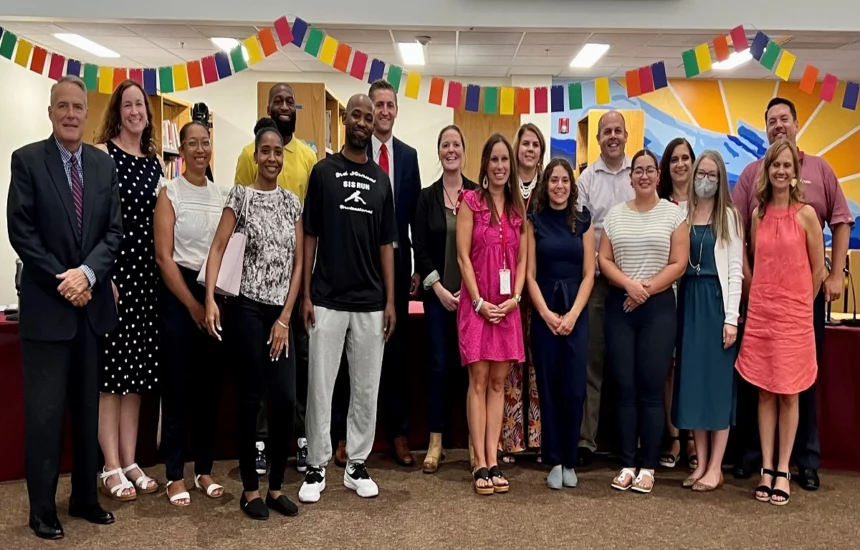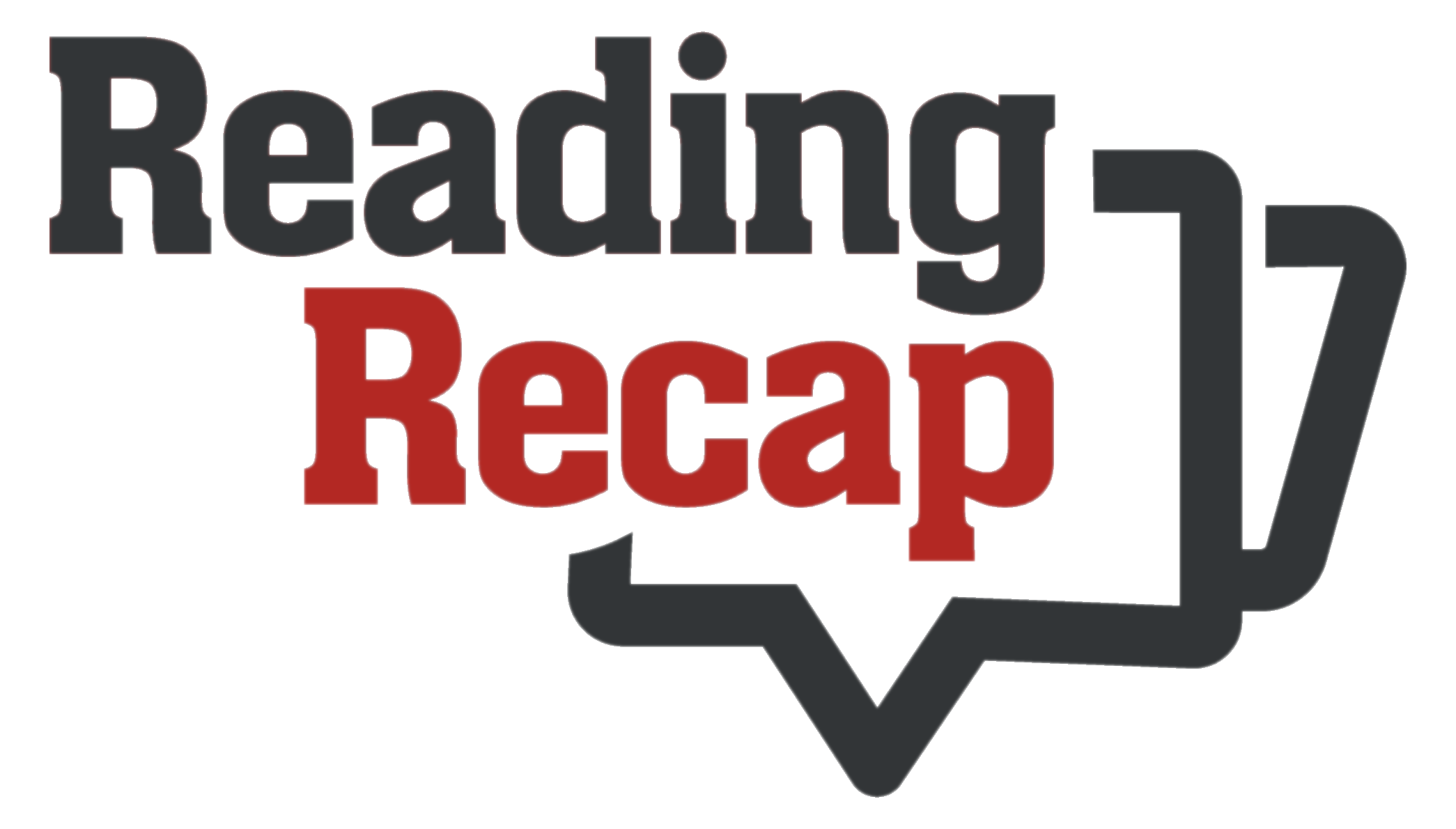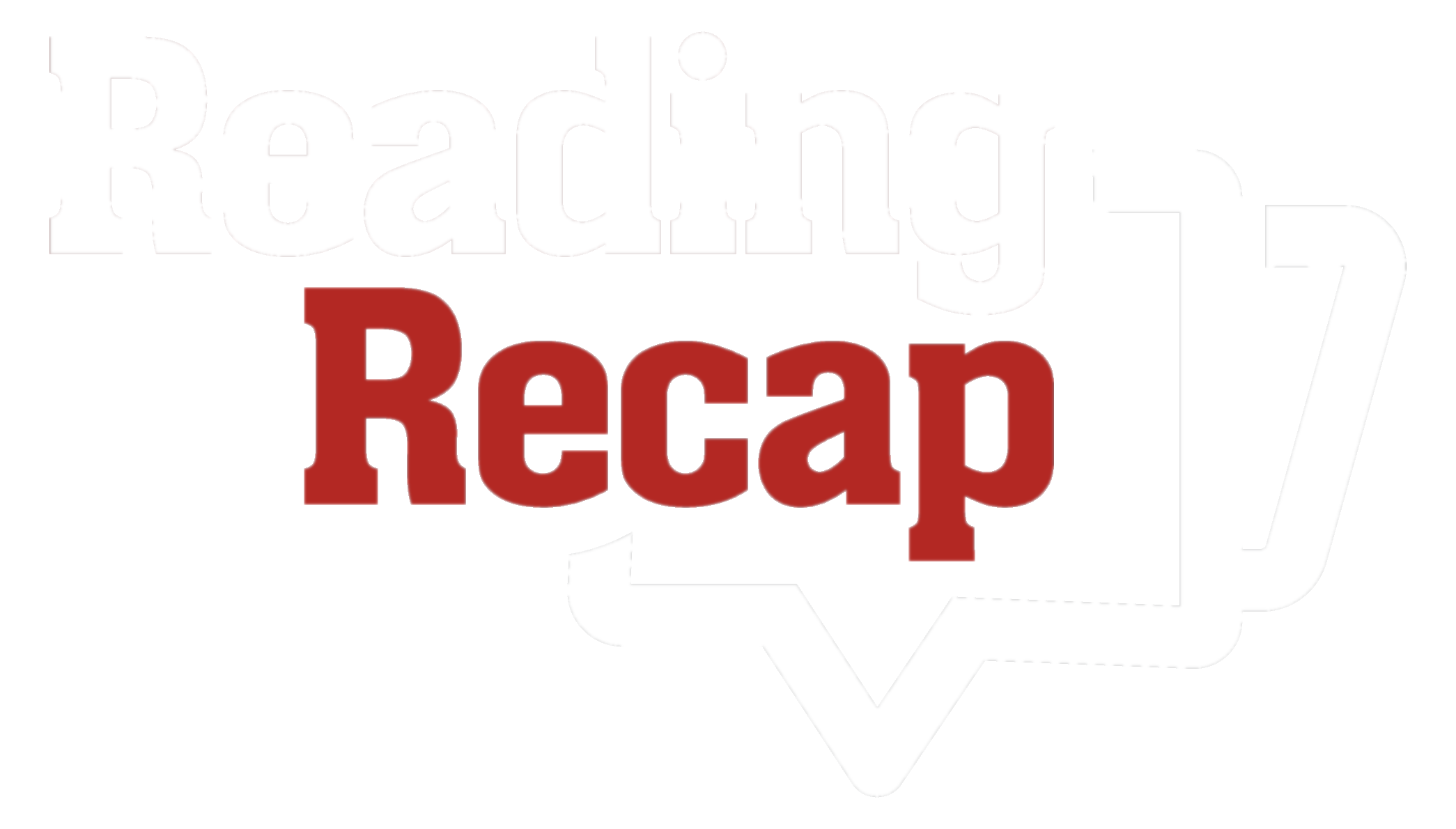Reading School Committee discusses Upcoming school year, Killam project, votes to name track after Hal Croft
Editor’s Note: in writing the original summary, I relied on some notes I took while watching the meeting, which notes unintentionally conflated comments by two different SC members about Killam – that is corrected below. In particular, my original attribution of certain statements to one SC member (Ms. Gaffen) inadvertently included information that another SC member (Tom Wise) actually spoke to, and my apologies for any confusion. I also received some RPS-based clarifying information about that space, and that information is added below, in italics, I believe reading it will be helpful in better understanding the challenges in space usage at Killam. For example, although the KIllam principal stated that Tier 2 interventions may be taking place in non-traditional spaces being used as classrooms, such as hallways or closet-like spaces, it was confirmed that these Tier 2 interventions do not include special ed services, and special ed services are NOT being provided in the nontraditional spaces at Killam.
The Reading School Committee (SC) kicked off the 2022-2023 Reading Public Schools (RPS) school year at their meeting on Monday August 29, 2022.
The meeting began with two members of the public who spoke in public comment. Resident Nancy Doktor advocated for more pay for district teachers (she suggested at least $10,000 more salary per teacher, for every RPS teacher). Resident and Select Board member Chris Haley reminded those present about the upcoming fall street faire on September 11, 2022 and noted that many town and school officials (including central office staff members, principals, assistant principals, school committee and Select Board members) are participating in his dunk tank event to raise money for charity.
The meeting continued with an introduction to new staff, quite a lot of whom attended the meeting and introduced themselves. In addition to new teachers, the new staff included new principals at Wood End, Barrows, and Parker, a new RISE director, 8 new school counselors, a new middle school METCO coordinator, a new special education department head, a new director of academic achievement at the high school, a special education evaluator, and English language learner program teacher, a full time director of health services, a full-time food services director, and a full time data specialist.
Superintendent Milaschewski shared some details about the upcoming school year, including the new Covid 19 protocols (which were emailed to parents and which will be shared on a district website link), the fact that we have 40 new METCO students this year, and that the district, like many others, is still trying to hire staff, especially Para educators.
The Superintendent also shared that the RMHS track construction is still on track to be completed in time for the September 23, 2022 opening RMHS football game.
In addition, the Superintendent gave some background and information on the new food services director for RPS, who came from Boston Public Schools. He noted that she will be attempting to introduce some new food innovations for RPS that were a success in Boston, such as more farm-to-table offerings and grab and go smoothies. It was also noted that free school lunches for all students in RPS, regardless of income, will continue for the entirety of the 2022-23 academic school year.
The Superintendent’s district updates also included some data on the RPS summer program for summer 2022. The program had 65 students, ranging in age from rising first graders to rising sixth graders, 70% of whom were deemed to be high needs students. The summer program provided support, reinforcement, and teaching in core academic areas, to help the summer program students stay on track and learn grade level skills.
The 40 new METCO students include a large number of new middle schoolers, the Superintendent explained, making the hiring of the new middle school METCO coordinator that much more important.
The Superintendent thanked the town, especially the Reading ARPA Advisory Committee (RAAC), for providing funding and support for new curriculum that is being rolled out during the 2022-2023 academic year. This new curriculum includes:
— continuing rollout of the new math curriculum, Illustrative Math for Gr. K-5 (which replaces Math in Focus, which was first used in 2013-14). Illustrative math rollout started for gr. 3-5 during 2021-2022 and is being rolled out in K-2 during 2022-2023:
—New rollout of the new literacy curriculum Arc Core, which RPS is implementing for gr. K-5, which replaces Wilson Fundations (long used in RPS), Fountas and Pinnell for reading (which RPS had used going at least as far back as 2010) and Lucy Calkins Units of Study for writing and reading, which the district has used for approximately the past 6 years. The rollout this year is for gr. 3-5, and K-2 will come next year.
—Elementary schools also are getting new supports this year, via the hiring of teaching fellows from Merrimack College and Endicott College.
The academic supports that are new for 2022-2023 were not limited to elementary. Superintendent Milaschewski shared that the high school has added a Tier 2 Academic Support center in the library. Initially, this support center will be used as a drop in center for students, but as the year progresses, Tier 2 supports will be available for students who are referred for this support by school staff. School staff will help to staff the academic support center during the school day.
The high school also has added two dual-enrollment classes, open to high school seniors, for this year. The two classes are being taught by professors from Endicott College. In addition, the high school has added several new computer science classes. Additionally, high school department heads will now have a greater role in providing instructional leadership to staff.
Following the Superintendent’s update, the SC then took a unanimous vote to name the RMHS track after Hal Croft, who is a former longtime RMHS teacher and track coach, as well as being a former SC member and SC chair.
The SC then went out of order, hearing an update on the Killam School building project and related information on a fall town meeting warrant article (which is expected to ask town meeting members to vote to approve an appropriation of for 2.2 mil from town free cash to fund a feasibility study for the school to replace Killam). The discussion and details of the project are too extensive for this article, but much of the information was included in the packet pages 286-321, which are cited in my other posts to this group.
School committee members had a number of questions for the consultant Dale Gienapp, many related to money, wanting rough estimates on the project cost and on any projections of the cost increases to the previous estimates (from 2019-2020 school year) which might result from inflation and/or supply chain issues. Gienapp countered that it was difficult to provide cost estimates until RPS decided on project scope, such as whether or not the replacement school planned would include RISE or not, whether it would be built to house 650 kids, 750 kids, or some other number, etc. Gienapp also stated that it would not be possible to know the cost of a new Killam school until after the $2.2 million dollar feasibility study is completed. SC members countered that, it may be challenging at town meeting, to discuss the project and the money for the feasibility study, without being able to give town meeting some top level numbers on the school cost.
The SC members also discussed generally how to present the town meeting warrant article relating to the $2.2 million dollar feasibility study, to town meeting. SC members noted a number of issues at Killam that exist and which town meeting members will be able to see as they have seen (it was mentioned that tours of Killam may be available). One SC member noted issues such as lack of Americans with Disability Act (ADA) accessible bathrooms and other ADA access issues, the fact that bottled water is needed because of lead issues in Killam water (which have been known since at least 2016), and the fact that the school is the only Reading school that has not been ever been updated since its construction (which was in 1969) .
SC member Erin Gaffen also noted to the group that it is important to convey to town meeting that the issue is not just about about enrollment changes, but also the fact that our children have changed.
Killam principal Sarah Leveque also spoke to the many additional issues at Killam, noting that staff must use closets and halls as classrooms for many services and academic supports, due to a lack of usable space, and that this use of halls, closets, and other non-traditional spaces for teaching of students means that storage space is lacking, so items normally stored in closets are being stored in many ways that are presenting potential fire hazards. The theme of her discussion was not just the lack of space, but the poor quality of the space that was in use.
The district also provided this clarifying information about Killam to this author, after some concerns were raised about the characterization in this summary, regarding the space usage at Killam:
—No special education students are taught in closets. Some general education tutoring or intervention spaces are former locker rooms/large storage closets (think a walk in closet). This would be on the stage and what was the head end room (technology server room). We [RPS] have done some conversion spaces but they are larger than people think of as a closet. There is definitely a lack of space and we [RPS] are storing in the hallways. Because people don’t understand the Hi-Ds [Hi-Ds are large, open common spaces with sunken floors in between clusters of classrooms.]…students [are] working in what in other schools is hallways. This is also where materials are stored….it is open space that is cluttered”
A public hearing on the Killam project, where many of these and other details will be discussed, including another overall project presentation from Gienapp, is coming up on September 8, 2022, at the RMHS library.
Following the Killam school update, the Parker Principal and RMHS principal then each went over respective presentations on their updated handbooks. The SC meeting packet (linked to in other posts to this group) provided further information on these proposed changes.
For the RMHS handbook, the packet included a summary memo at pages 16-17, a presentation on the changes at pages 18-22, and the actual handbook with changes at pages 23-167, in marked up mode including comment. Most changes in the RMHS handbook related to attendance policy and disciplinary actions, with RMHS principal Tracey noting that RMHS has a significant attendance issue, with attendance figures that are much worse than other high schools in the Middlesex League. SC members discussed some of the proposed changes with Principal Tracey, noting that some issues should be cleaned up before the SC takes its legally required annual vote to approve the handbook, in a future SC meeting.
For the Parker handbook, the packet included a presentation on changes to the Parker Middle School handbook (pages 168-177) that resulted from a two year “equity audit” of the Parker handbook, along with a copy of the handbook before changes (pages 178-229, with areas highlighted in yellow showing areas of change), a copy of the Parker handbook as proposed to be revised (pages 230-285, with areas in yellow showing changes made. Most changes relate to the dress code, restorative discipline, inclusive language, and some changes to grading standard meanings and homework policies.
As part of the handbook discussion, some school committee members asking questions about some of the changes, such as changing handbook references from “parent or guardian” to “caregiver”. SC member Wise questioned why this change was made, noting that the term “caregiver” is not consistent with the terms (“parent or guardian”) that are used in the very state laws that the handbooks cite. Mr. Wise noted that a “caregiver” does not always have the same legal rights as a parent or guardian, and he cited the example of a nanny, which would meet the definition of a “caregiver,” but who normally is not empowered to make the same legal decisions on behalf of children as a parent or guardian. SC chair Shawn Brandt agreed that these changes need to be fully vetted by the SC legal counsel to be sure the wording properly reflects intended meaning.
The SC meeting concluded with an overview of the new RPS website, which is expected to be rolled out in the next few weeks. Finance Director Susan Bottan outlined the process for selecting the new website provider (Schoolblocks), including several months of work by a website committee that included staff, parents, and community members. The new website will have a “look and feel” similar to the new website for Lynnfield Public Schools. Superintendent Milaschewski explained that the current “Rediker” website (which has been in place since August 2016), continually presented multiple issues for district staff, including difficulty in updating and posting, and he believes the new website will be more informative for parents and easier to use, and that its cost will be only marginally more than the current website.
The SC meeting concluded at approximately 10:45 pm.








